The Great Lessons
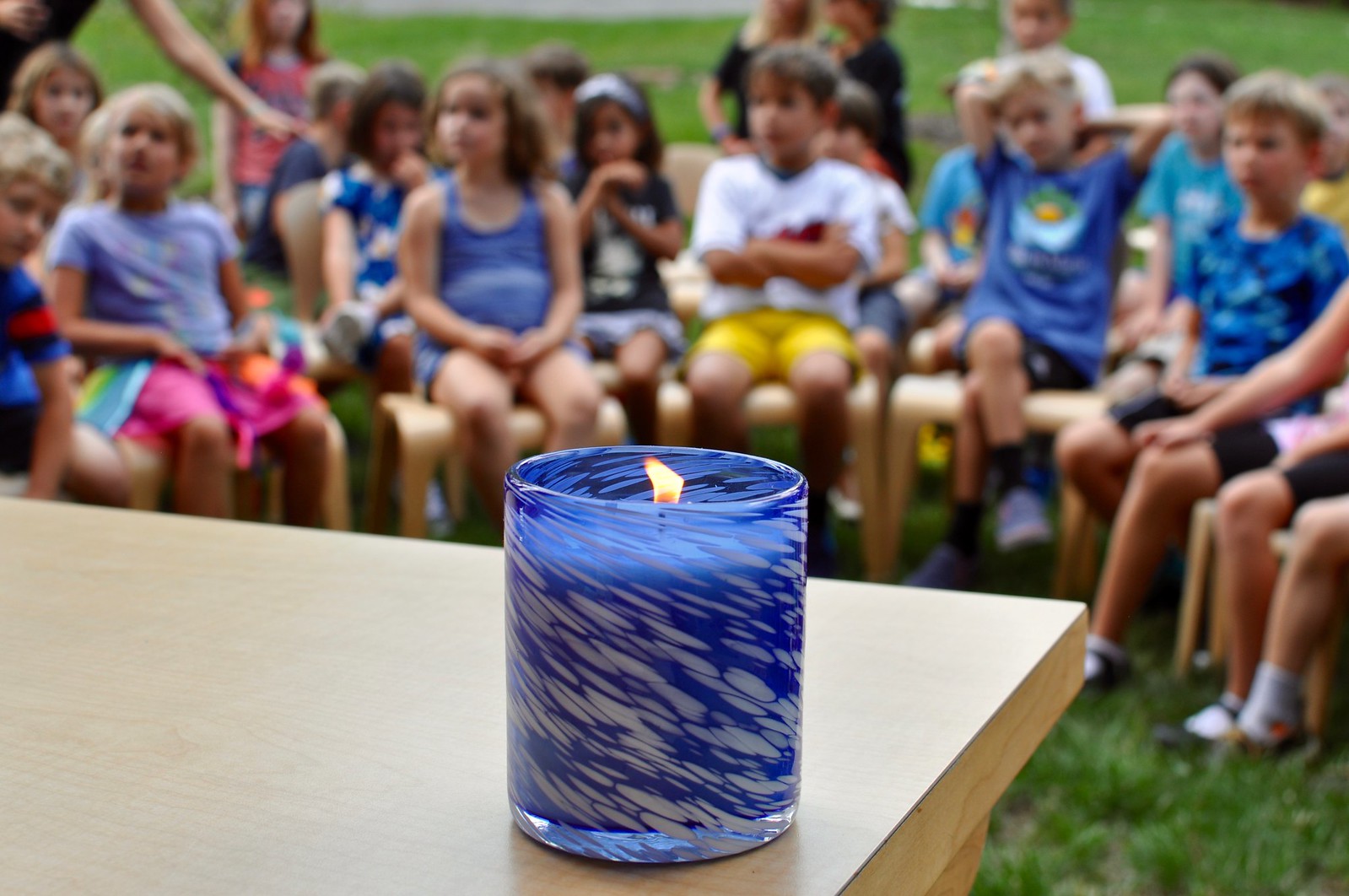 "No matter what we touch, an atom, or a cell, we cannot explain it without knowledge of the wide universe. What better answer can be given to those seekers for knowledge? It becomes doubtful whether even the universe will suffice. How did it come into being? How will it end? A greater curiosity arises, which can never be satiated; so will last through a lifetime. The laws governing the universe can be made interesting and wonderful to the child, more interesting even than things in themselves, and he begins to ask: What am I? What is the task of man in this wonderful universe? Do we merely live here for ourselves, or is there something more for us to do? Why do we struggle and fight? What is good and evil? Where will it all end? ... Since it has been seen to be necessary to give so much to the child, let us give him a vision of the whole universe. The universe is an imposing reality, and an answer to all questions." (from To Educate the Human Potential, by Dr. Maria Montessori) The Great Lessons, below.
"No matter what we touch, an atom, or a cell, we cannot explain it without knowledge of the wide universe. What better answer can be given to those seekers for knowledge? It becomes doubtful whether even the universe will suffice. How did it come into being? How will it end? A greater curiosity arises, which can never be satiated; so will last through a lifetime. The laws governing the universe can be made interesting and wonderful to the child, more interesting even than things in themselves, and he begins to ask: What am I? What is the task of man in this wonderful universe? Do we merely live here for ourselves, or is there something more for us to do? Why do we struggle and fight? What is good and evil? Where will it all end? ... Since it has been seen to be necessary to give so much to the child, let us give him a vision of the whole universe. The universe is an imposing reality, and an answer to all questions." (from To Educate the Human Potential, by Dr. Maria Montessori) The Great Lessons, below.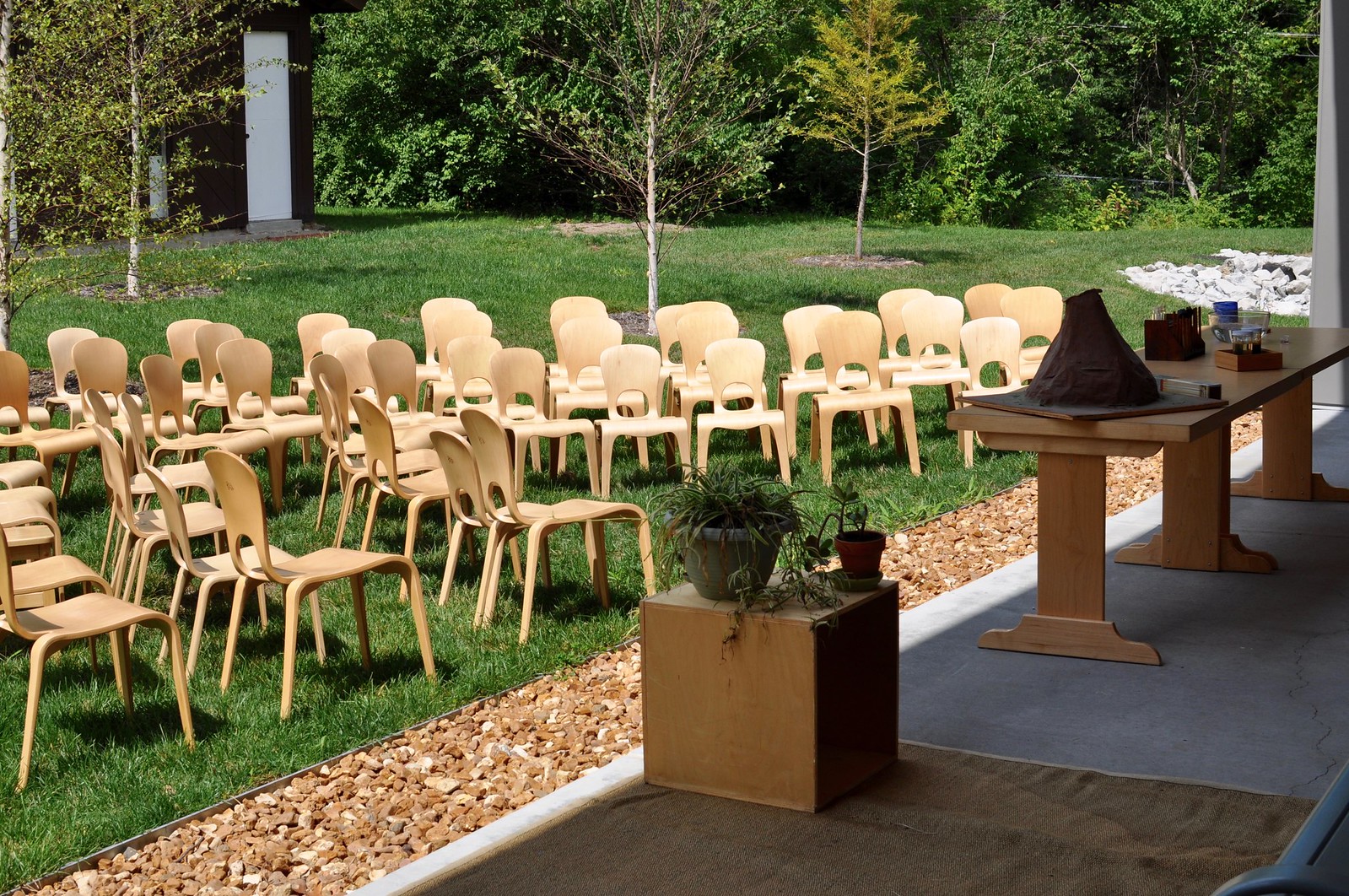

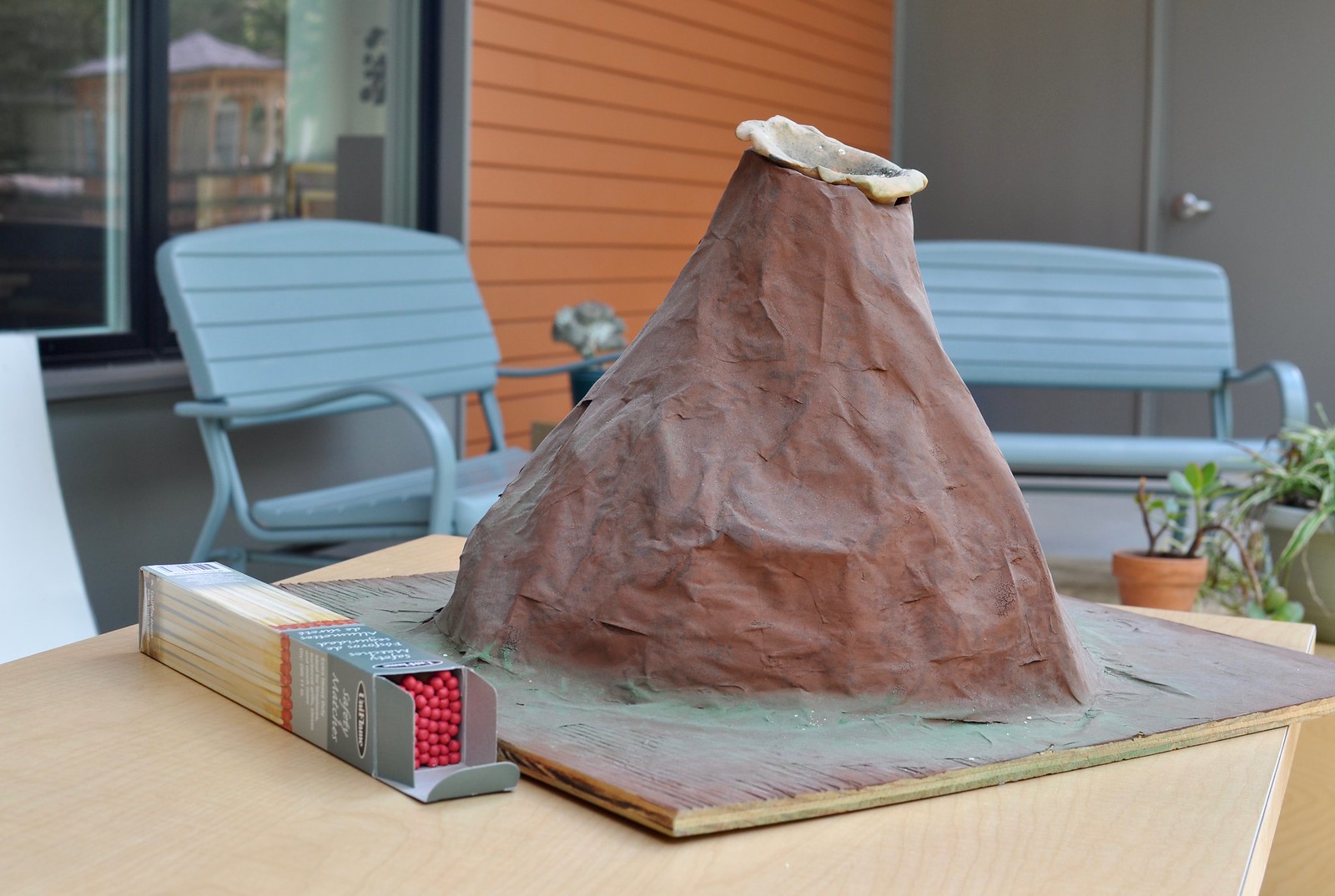 During the first week of school, the Lower and Upper Elementary Directresses start with a BANG! - quite literally. Here, Lower Elementary Directress Anna Schwind explains the magic - and the methodology - behind the Great Lessons.
During the first week of school, the Lower and Upper Elementary Directresses start with a BANG! - quite literally. Here, Lower Elementary Directress Anna Schwind explains the magic - and the methodology - behind the Great Lessons.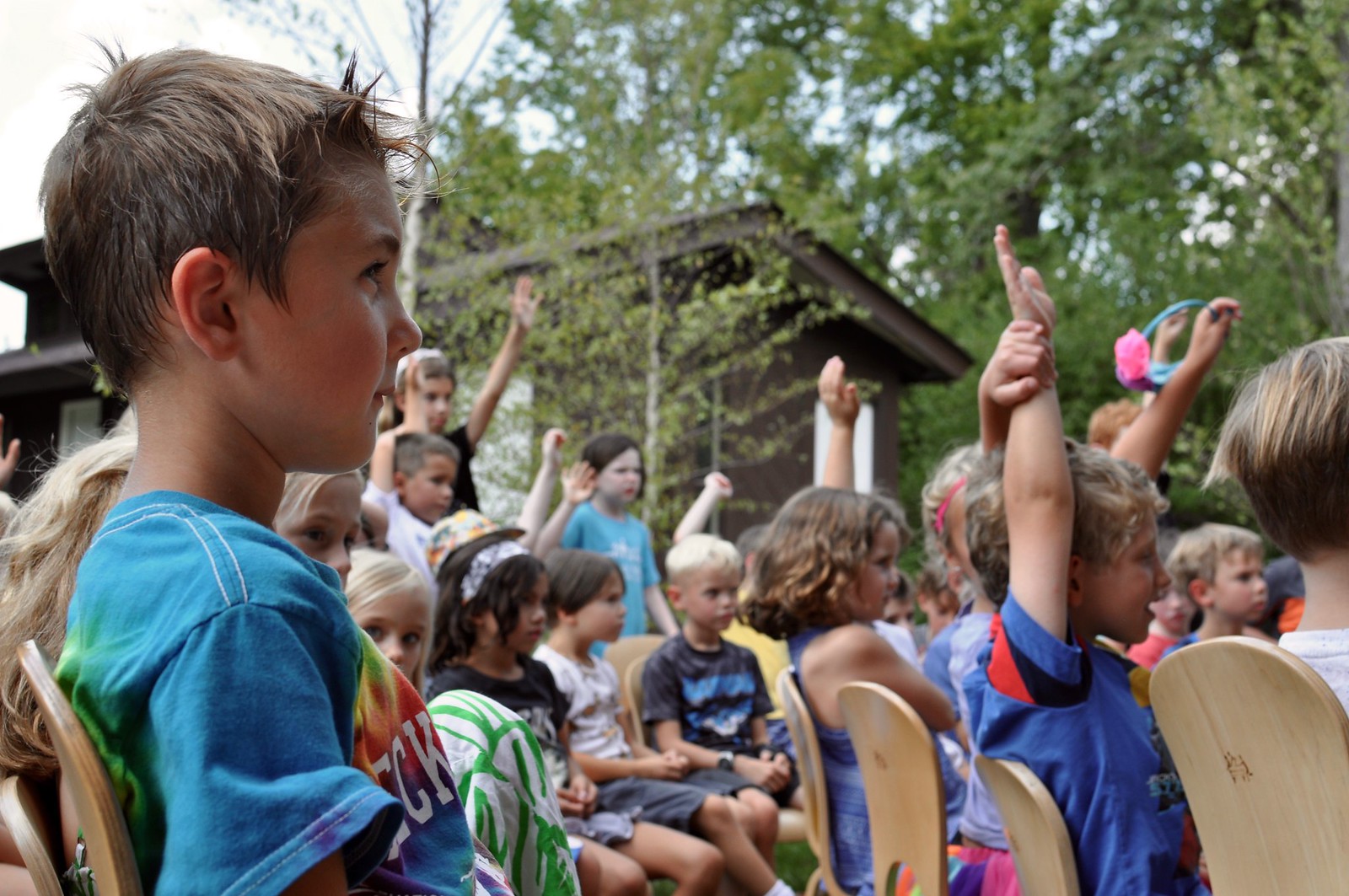 "The Great Lessons are designed to appeal to the imagination and interests of the second plane child. They are meant to be broad in scope and throw out a variety of ideas for the students to pursue. They begin as far back as possible. They cover vast ideas and expansive periods of time. Instead of starting with a small concept or idea and widening that, the Great Lessons lay out the organizing structures of our universe. They create the framework into which the children can place all the other knowledge they acquire."
"The Great Lessons are designed to appeal to the imagination and interests of the second plane child. They are meant to be broad in scope and throw out a variety of ideas for the students to pursue. They begin as far back as possible. They cover vast ideas and expansive periods of time. Instead of starting with a small concept or idea and widening that, the Great Lessons lay out the organizing structures of our universe. They create the framework into which the children can place all the other knowledge they acquire."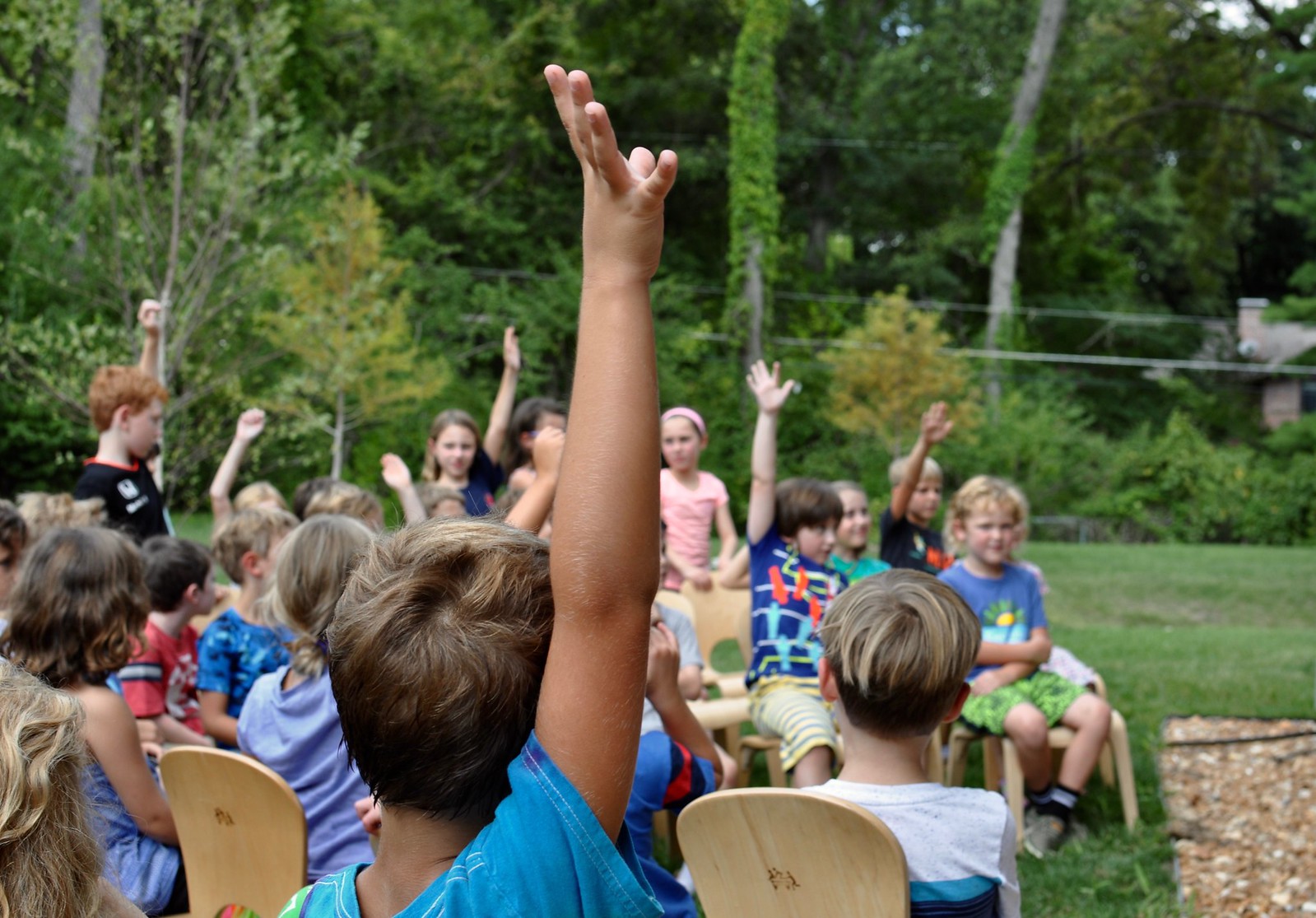
 "The first Great Lesson [shown here] reveals the creation of the universe and our planet, and it sets the stage for all that comes afterward. It creates anticipation for what will come next: life. It places us precisely within the universe, on our small planet, in our solar system with its medium sized star, the only place where we've discovered life so far. While facts are presented in the great lesson: such as the existence of laws for differing states of matter, and the speed of light as the fastest thing we know of, it is not primarily concerned with facts. The second plane child, the elementary child, now uses their imagination to acquire knowledge and the Great Lessons are meant to stimulate that imagination."
"The first Great Lesson [shown here] reveals the creation of the universe and our planet, and it sets the stage for all that comes afterward. It creates anticipation for what will come next: life. It places us precisely within the universe, on our small planet, in our solar system with its medium sized star, the only place where we've discovered life so far. While facts are presented in the great lesson: such as the existence of laws for differing states of matter, and the speed of light as the fastest thing we know of, it is not primarily concerned with facts. The second plane child, the elementary child, now uses their imagination to acquire knowledge and the Great Lessons are meant to stimulate that imagination."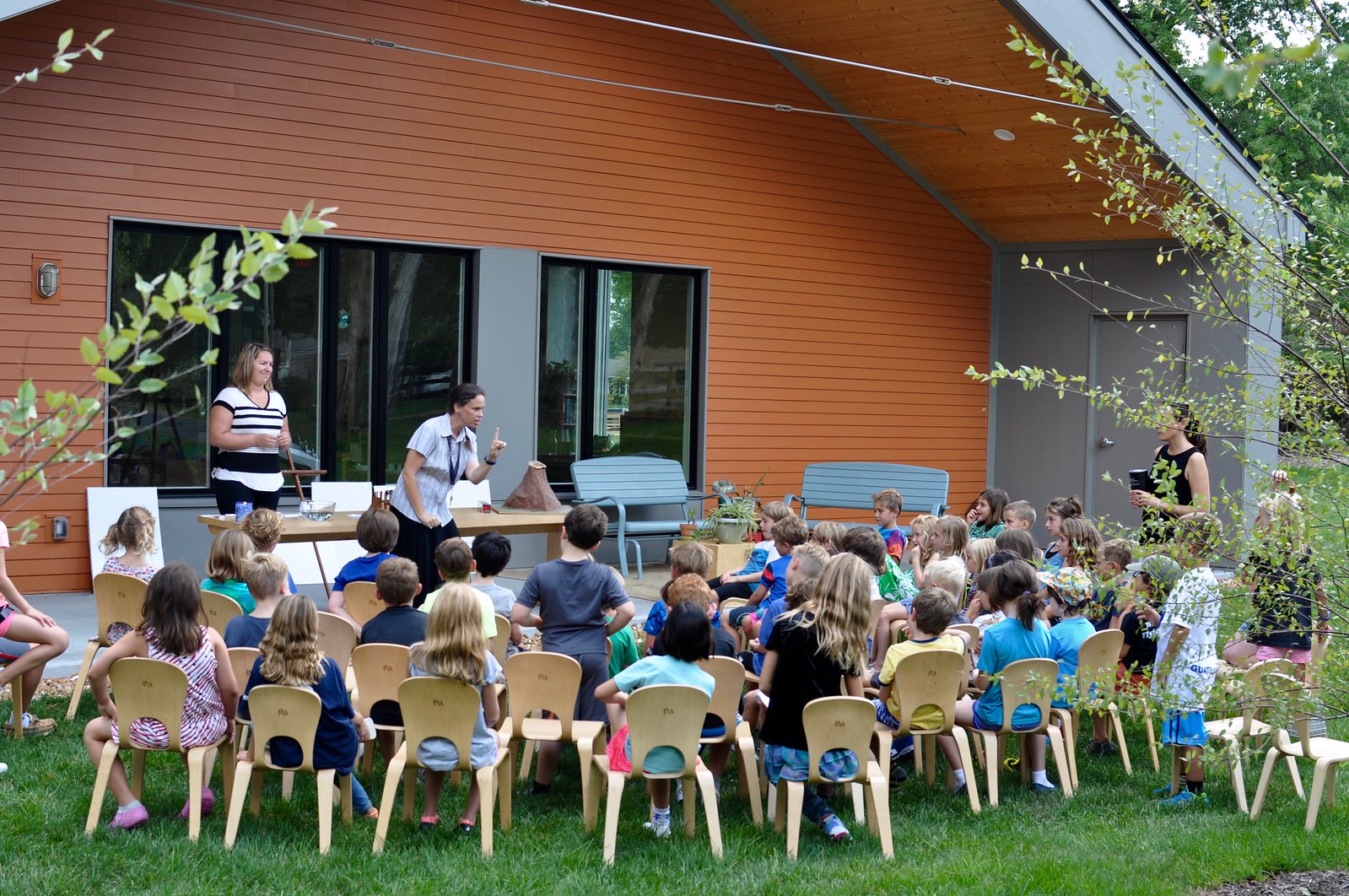 "If the idea of the universe be presented to the child in the right way, it will do more for him than just arouse his interest, for it will create in him admiration and wonder, a feeling loftier than any interest and more satisfying. The child’s mind will then no longer wander, but becomes fixed and can work. The knowledge he acquires is organized and systematic; his intelligence becomes whole and complete because of the vision of the whole that has been presented to him, and his interest spreads to all, for all are linked and have their place in the universe on which his mind is centred." (To Educate the Human Potential)
"If the idea of the universe be presented to the child in the right way, it will do more for him than just arouse his interest, for it will create in him admiration and wonder, a feeling loftier than any interest and more satisfying. The child’s mind will then no longer wander, but becomes fixed and can work. The knowledge he acquires is organized and systematic; his intelligence becomes whole and complete because of the vision of the whole that has been presented to him, and his interest spreads to all, for all are linked and have their place in the universe on which his mind is centred." (To Educate the Human Potential)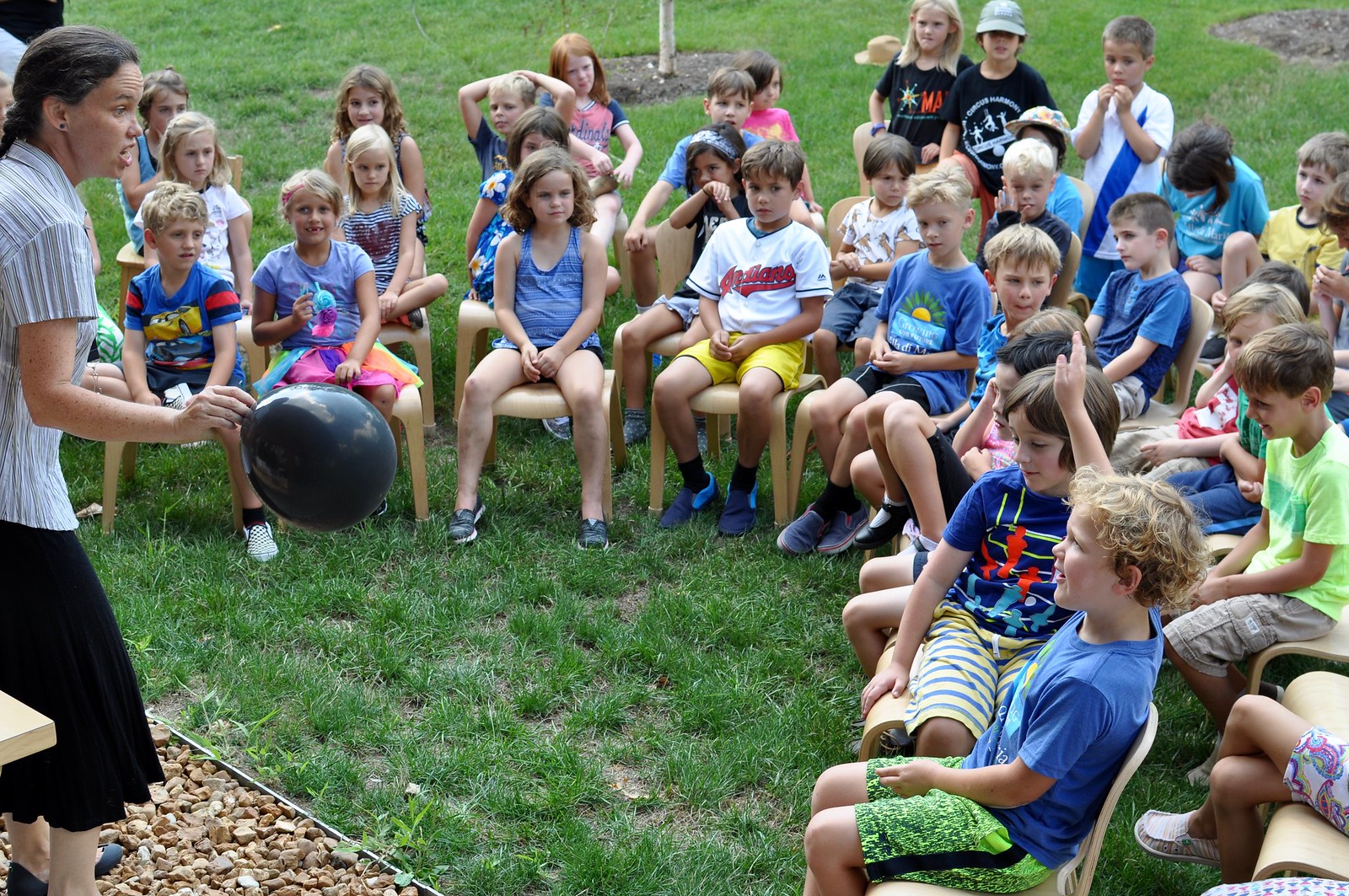
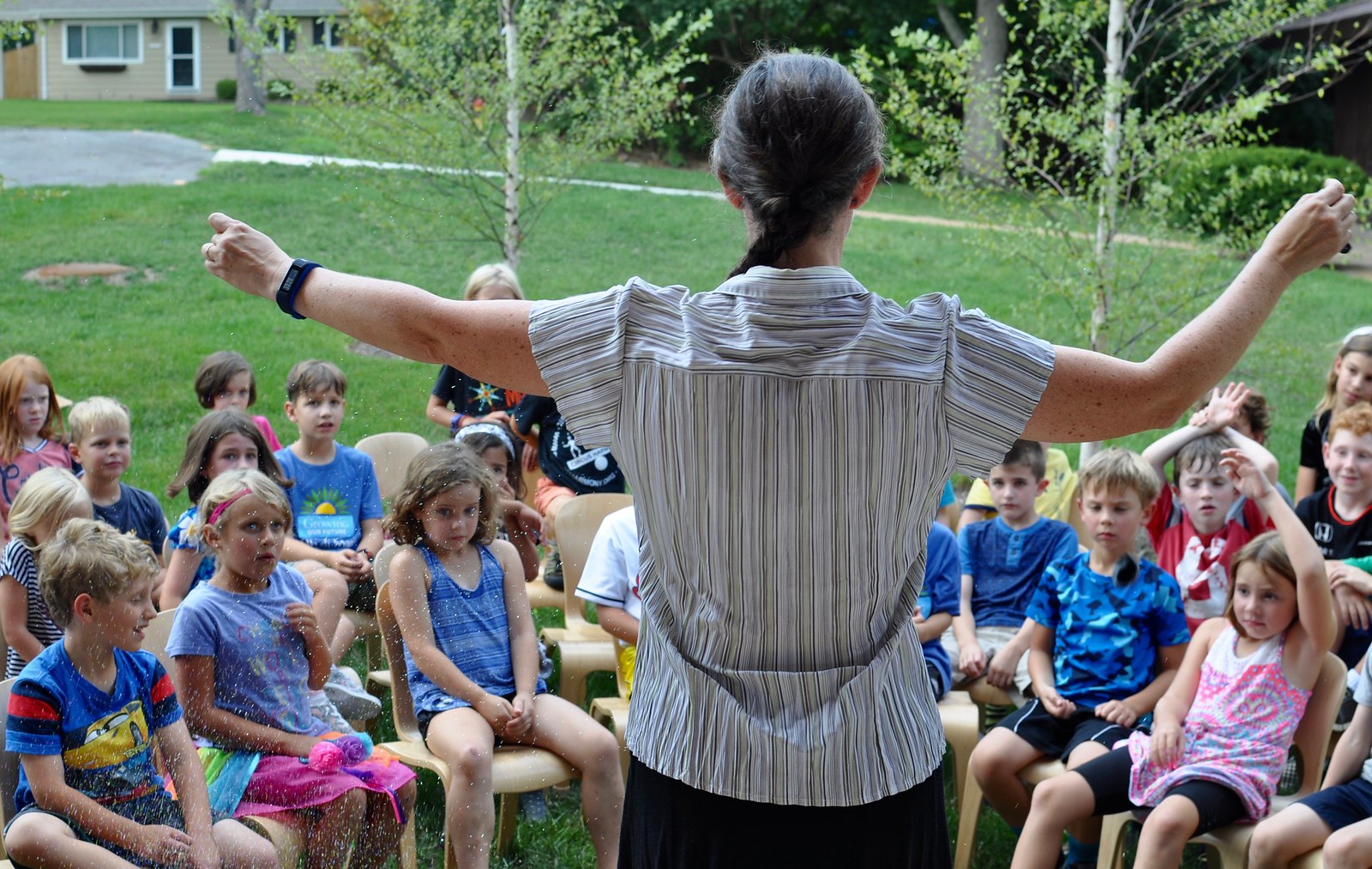 "Think about the darkest thing you know, the guide will ask, and then realize that at the beginning it was darker even than that. Think about the coldest thing you've experienced, the guide will say, and then know that it was colder even than that. And so, the story progresses. From the littlest microscopic particles to the immensity of the entire universe are presented in one sitting. The Great Lessons will also include impressionistic and fanciful charts, stories with personification, allegories and narrative elements meant to appeal to the imagination and generate interest."
"Think about the darkest thing you know, the guide will ask, and then realize that at the beginning it was darker even than that. Think about the coldest thing you've experienced, the guide will say, and then know that it was colder even than that. And so, the story progresses. From the littlest microscopic particles to the immensity of the entire universe are presented in one sitting. The Great Lessons will also include impressionistic and fanciful charts, stories with personification, allegories and narrative elements meant to appeal to the imagination and generate interest."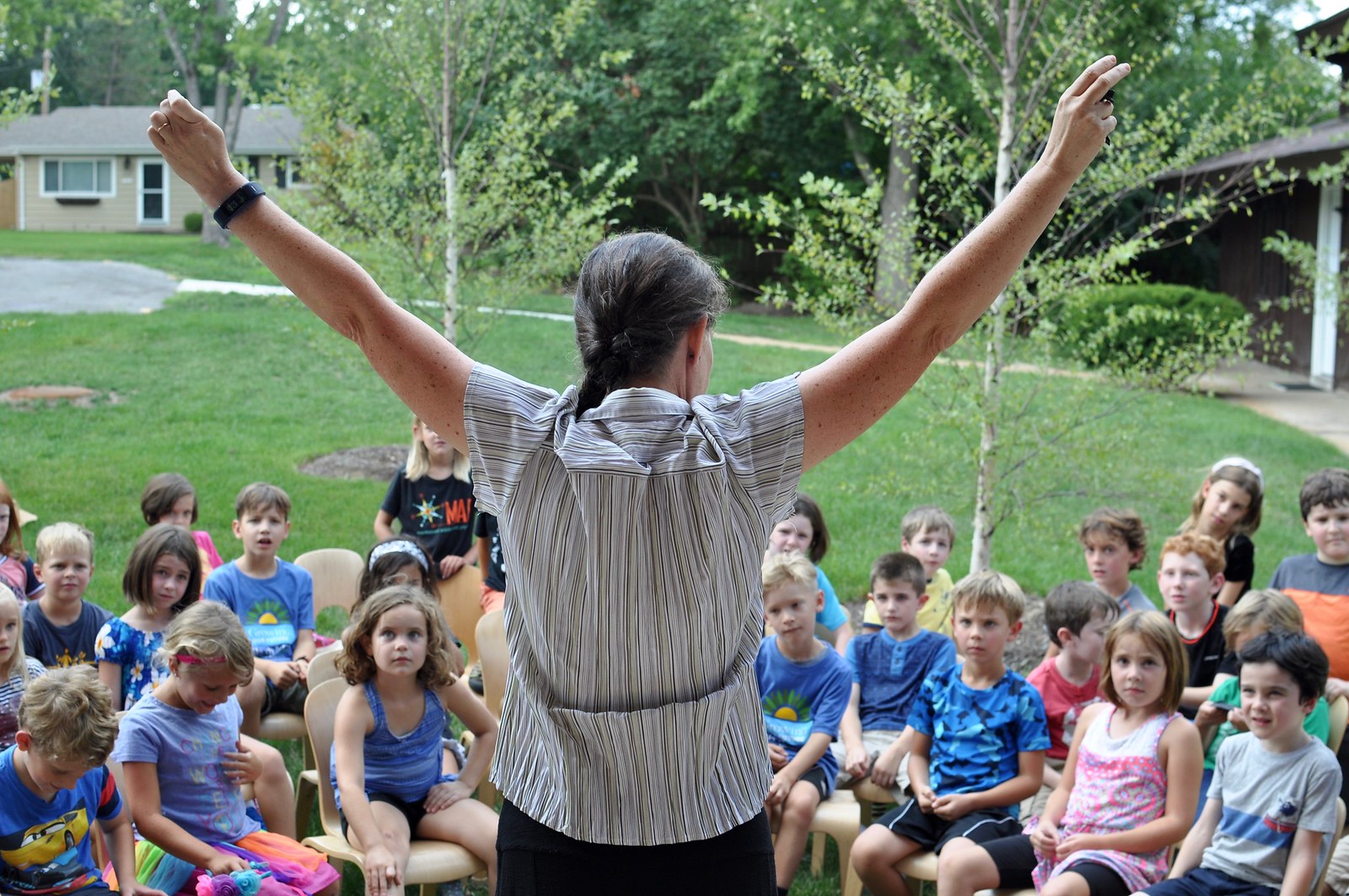
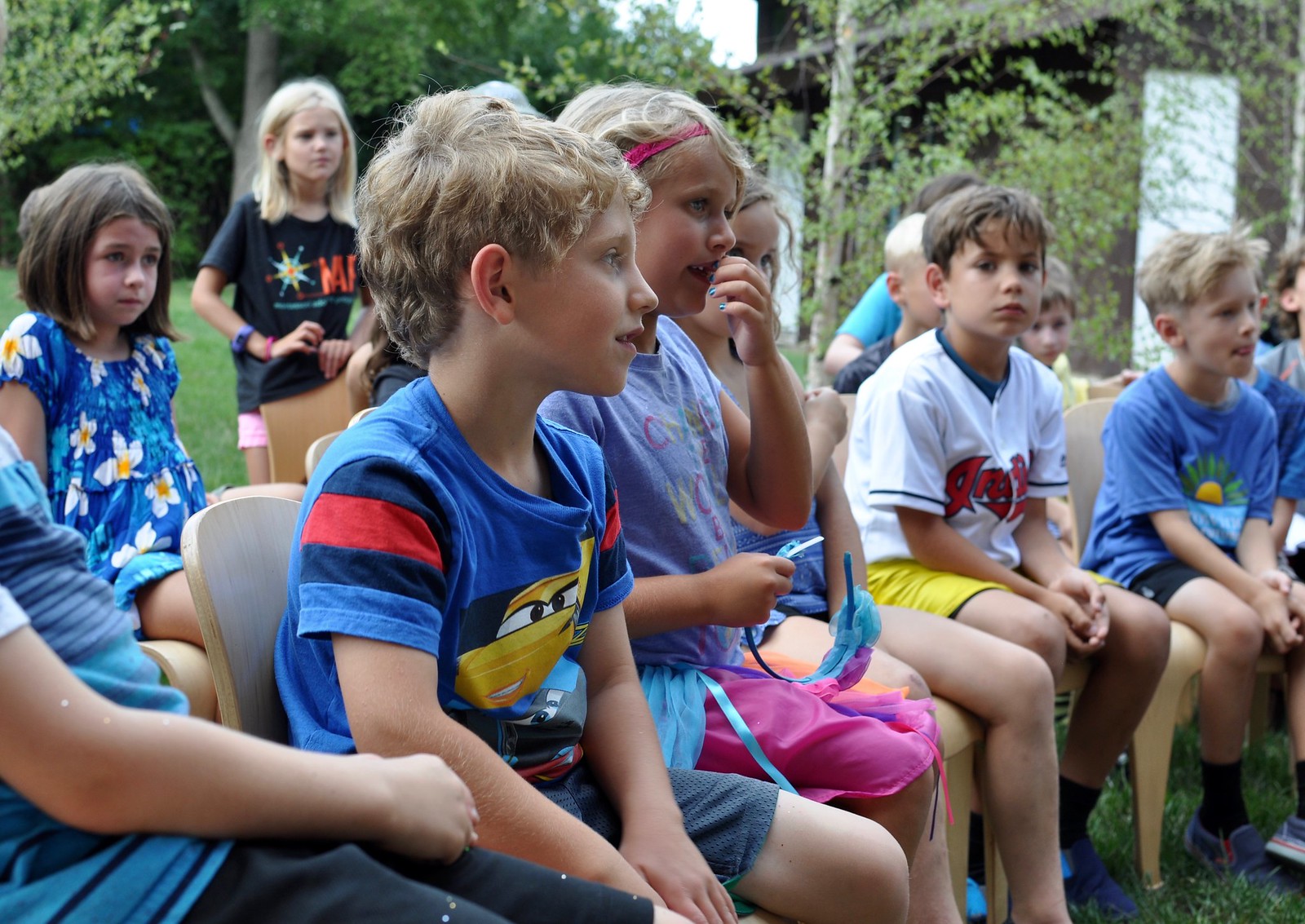
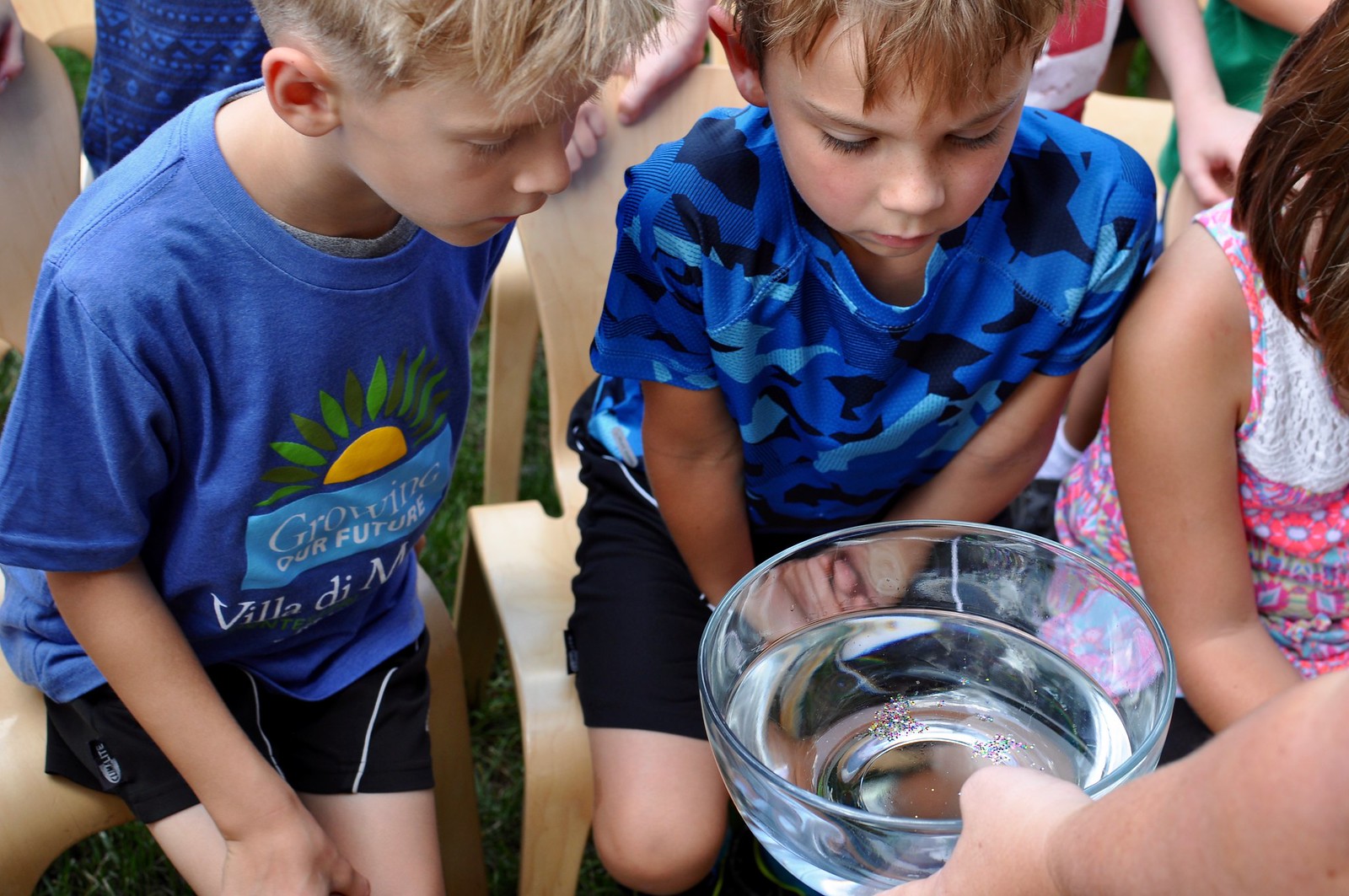 "Our aim is to give them a sense of the whole universe, to spur a sense of admiration and wonder. The Great Lessons also provide a sense of perspective, showing that our sun is much larger than our Earth, showing that for billions of years no people existed, showing that the laws particles had to follow when time began are still the laws that particles must follow today."
"Our aim is to give them a sense of the whole universe, to spur a sense of admiration and wonder. The Great Lessons also provide a sense of perspective, showing that our sun is much larger than our Earth, showing that for billions of years no people existed, showing that the laws particles had to follow when time began are still the laws that particles must follow today."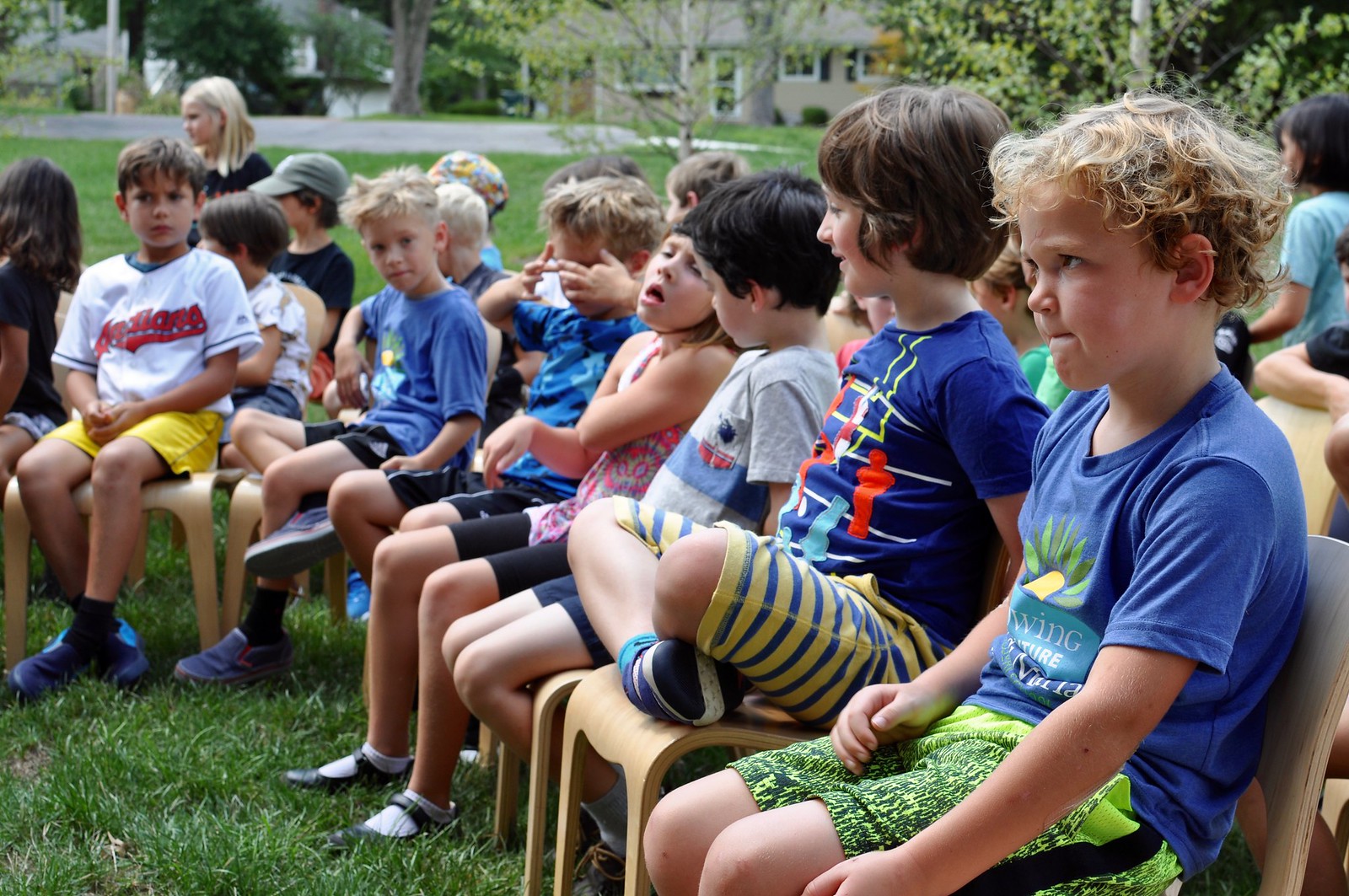
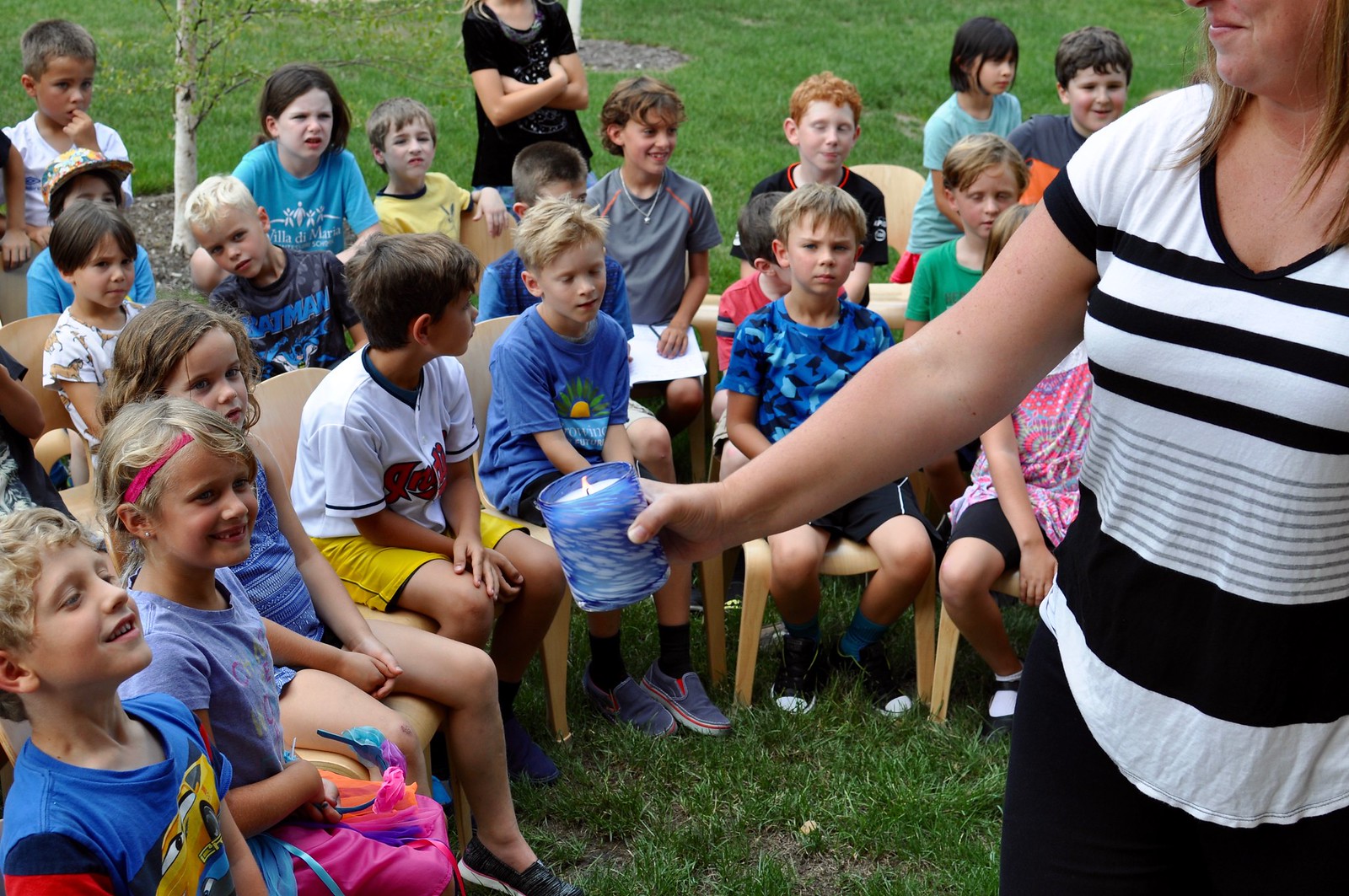
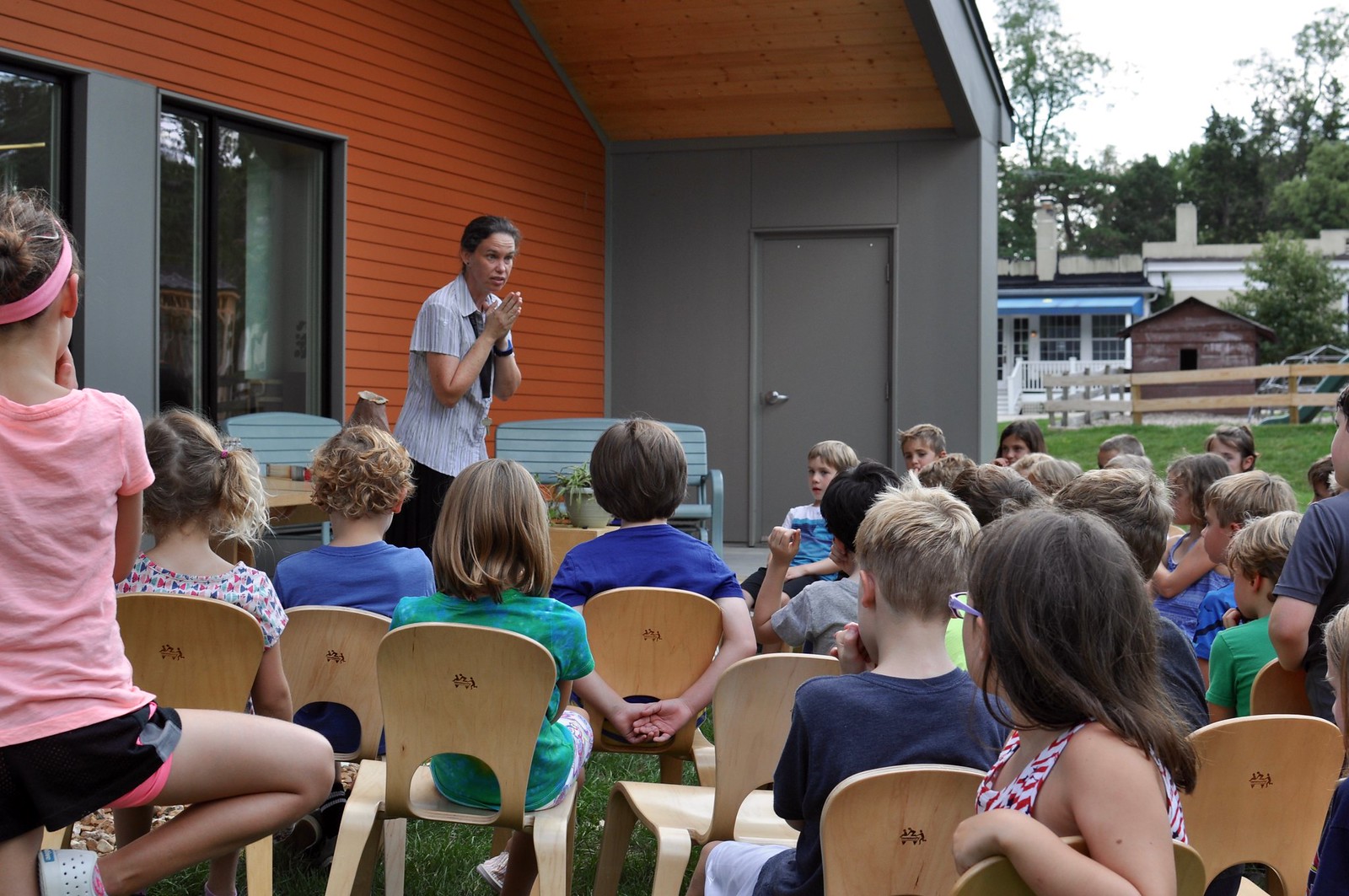
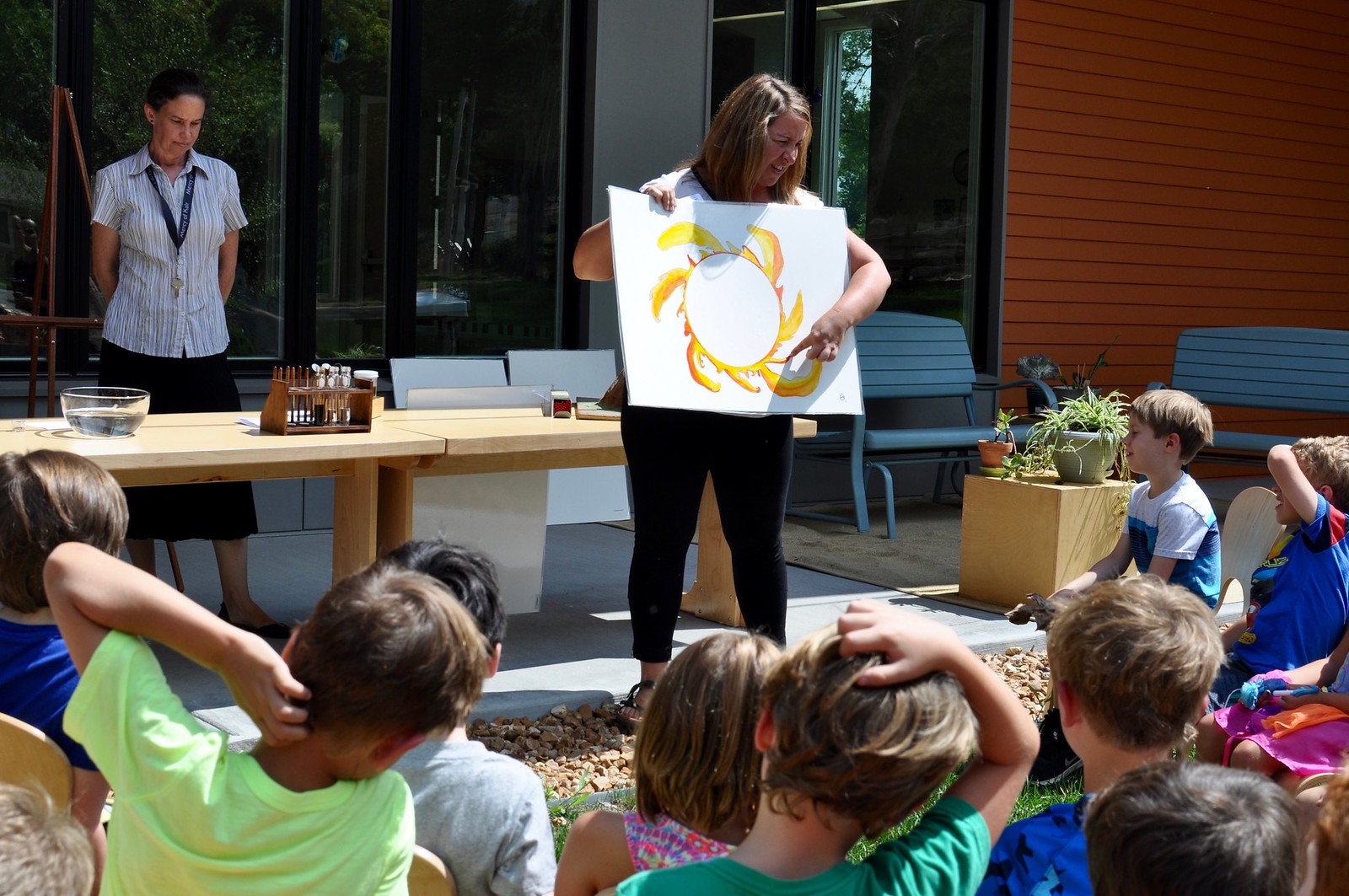
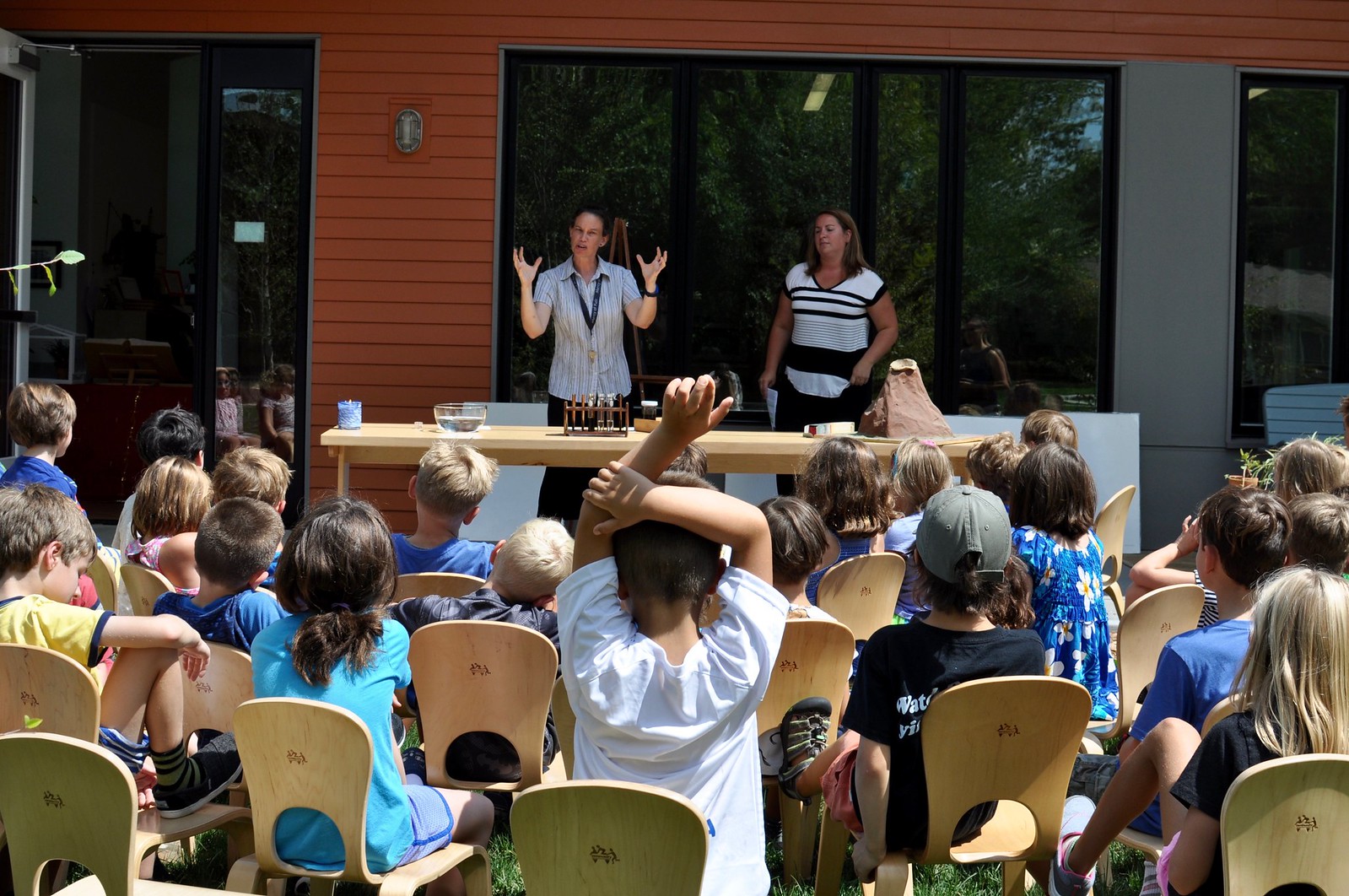
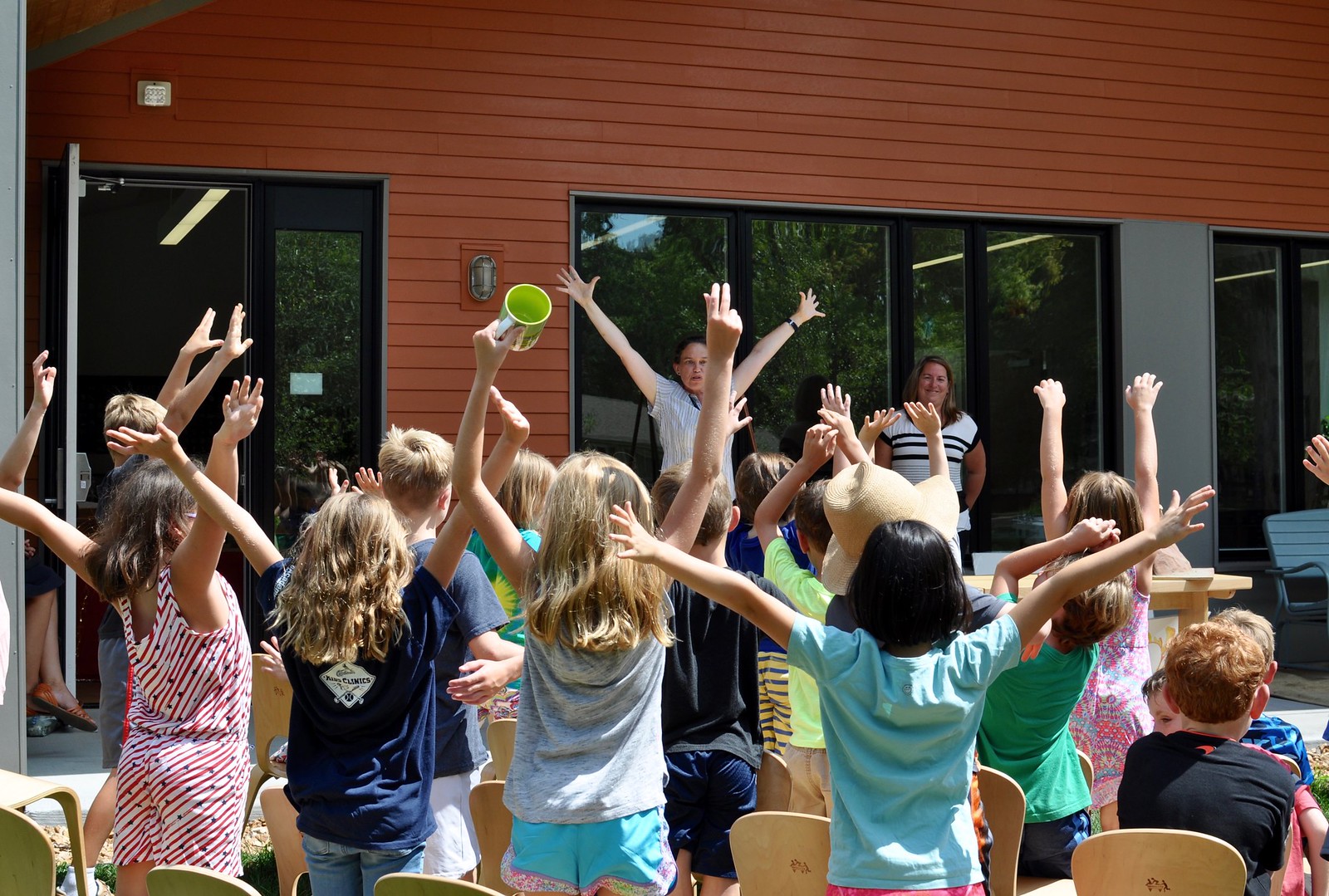
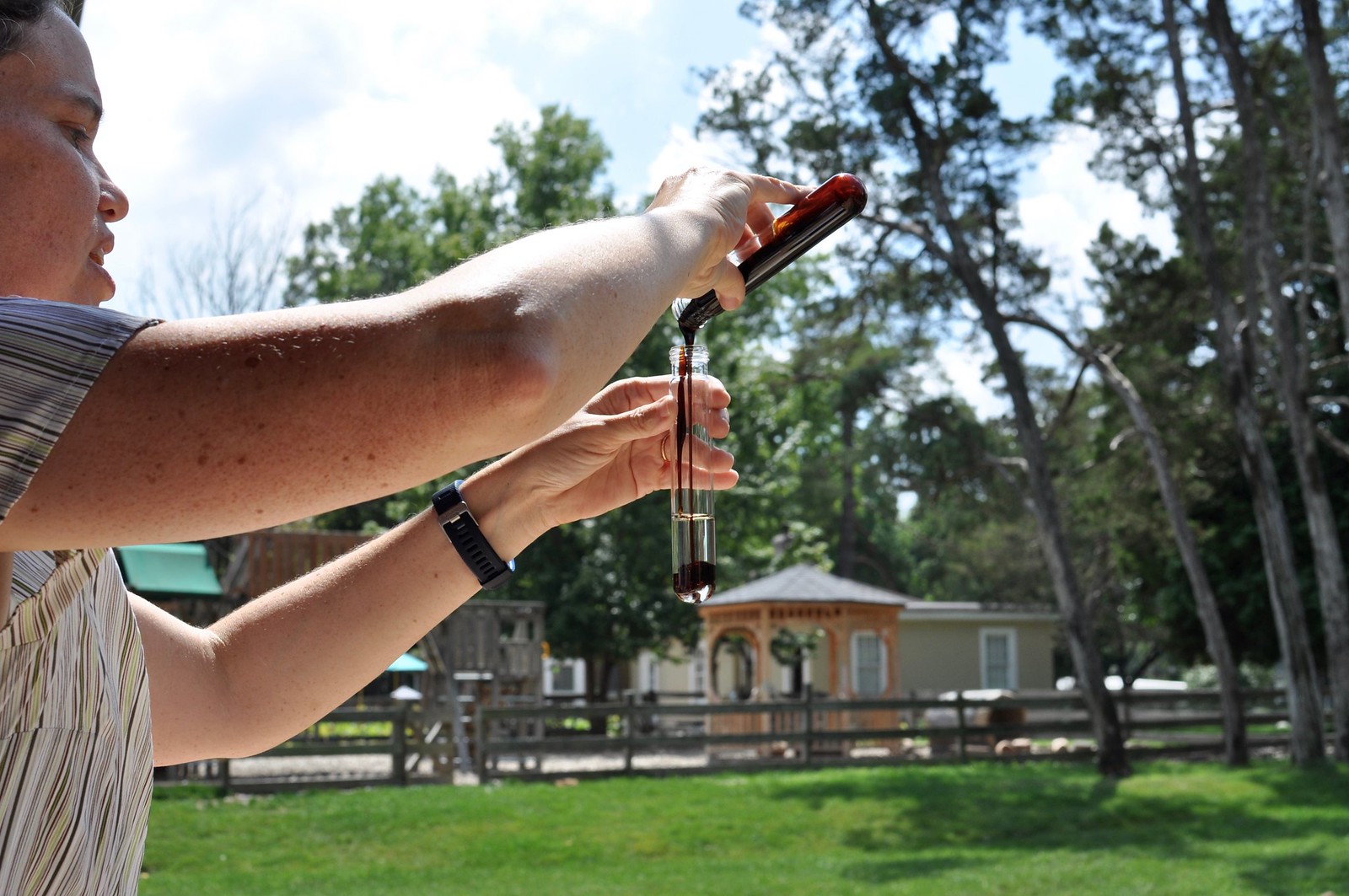
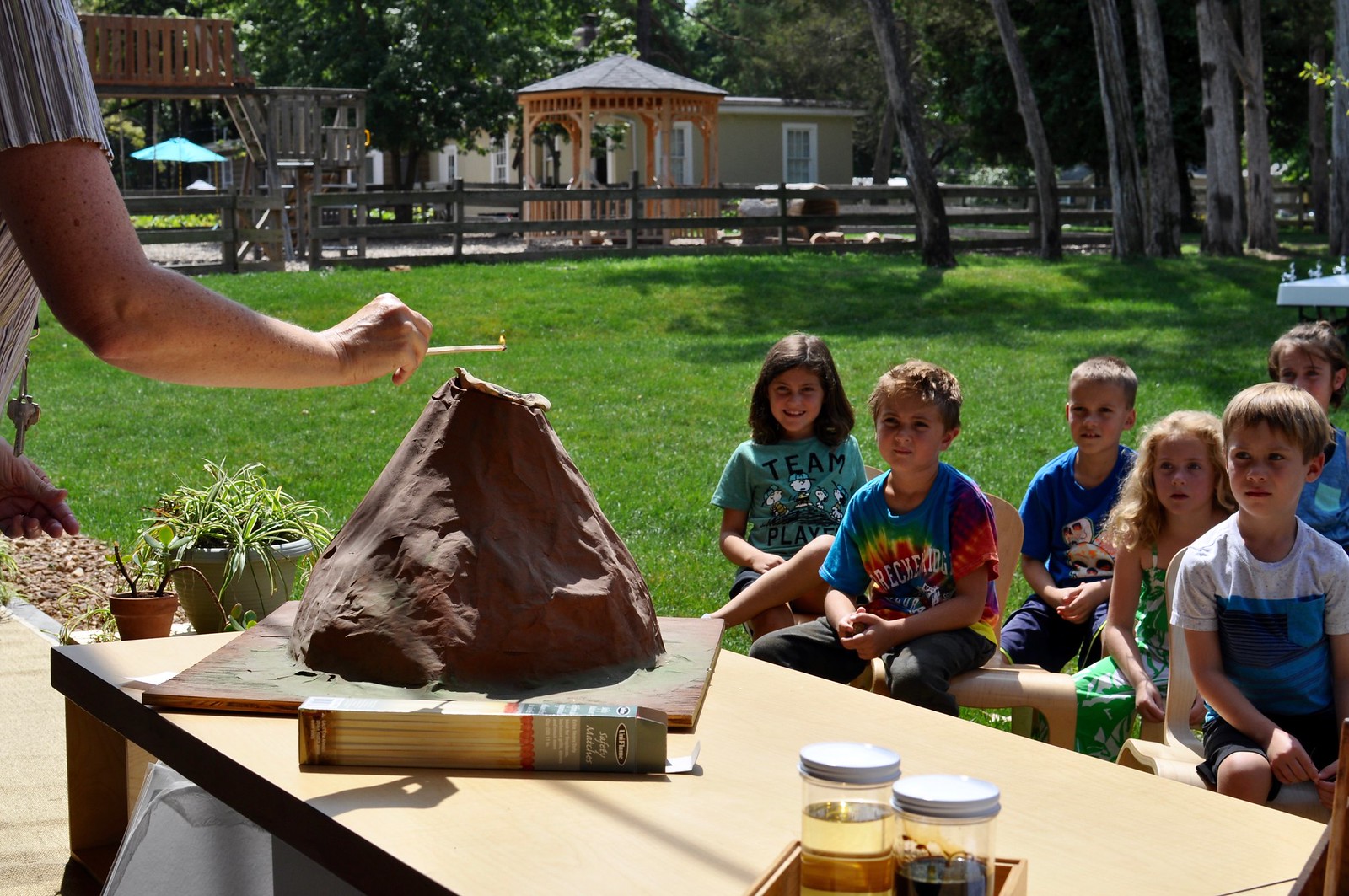
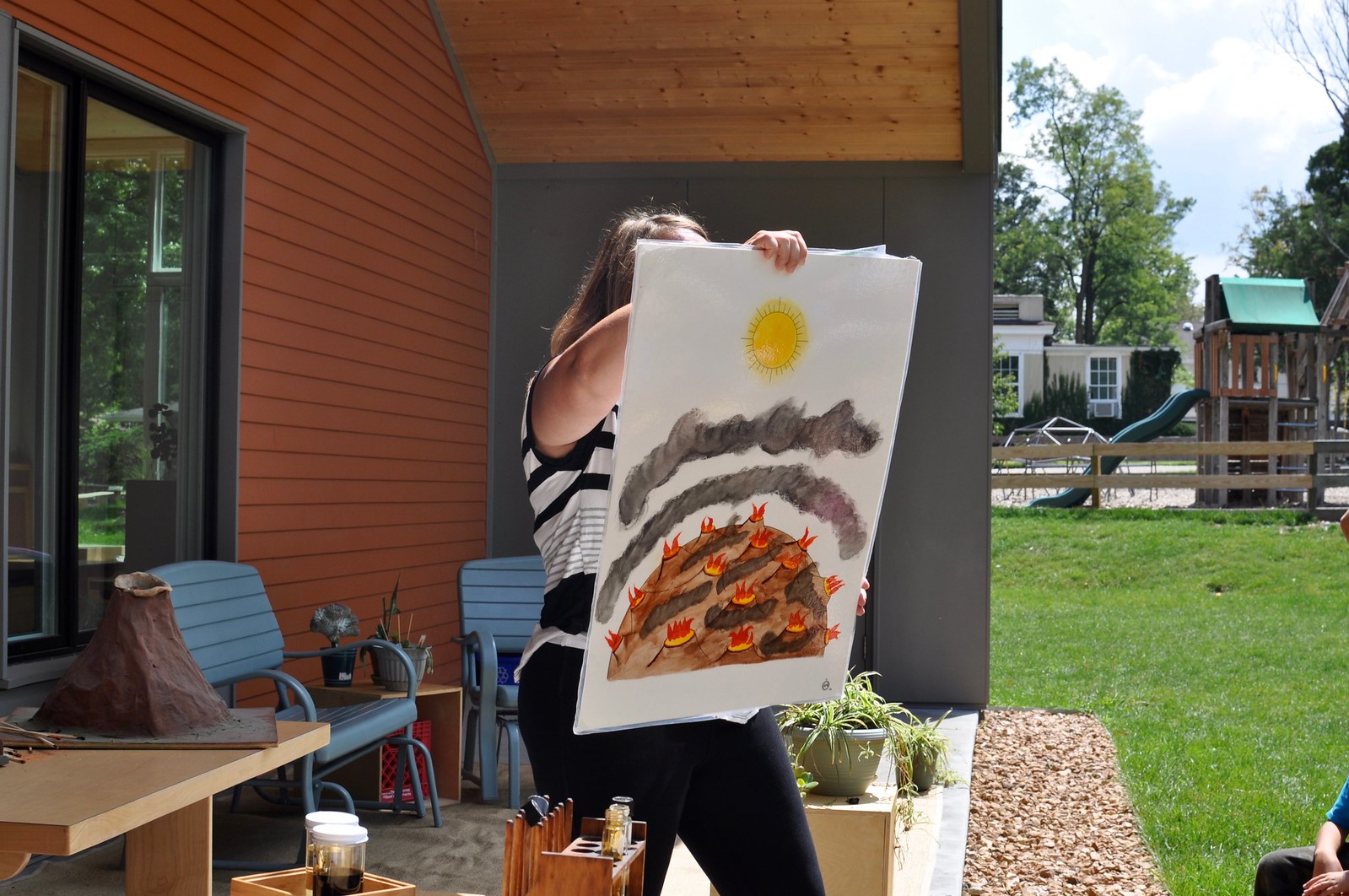
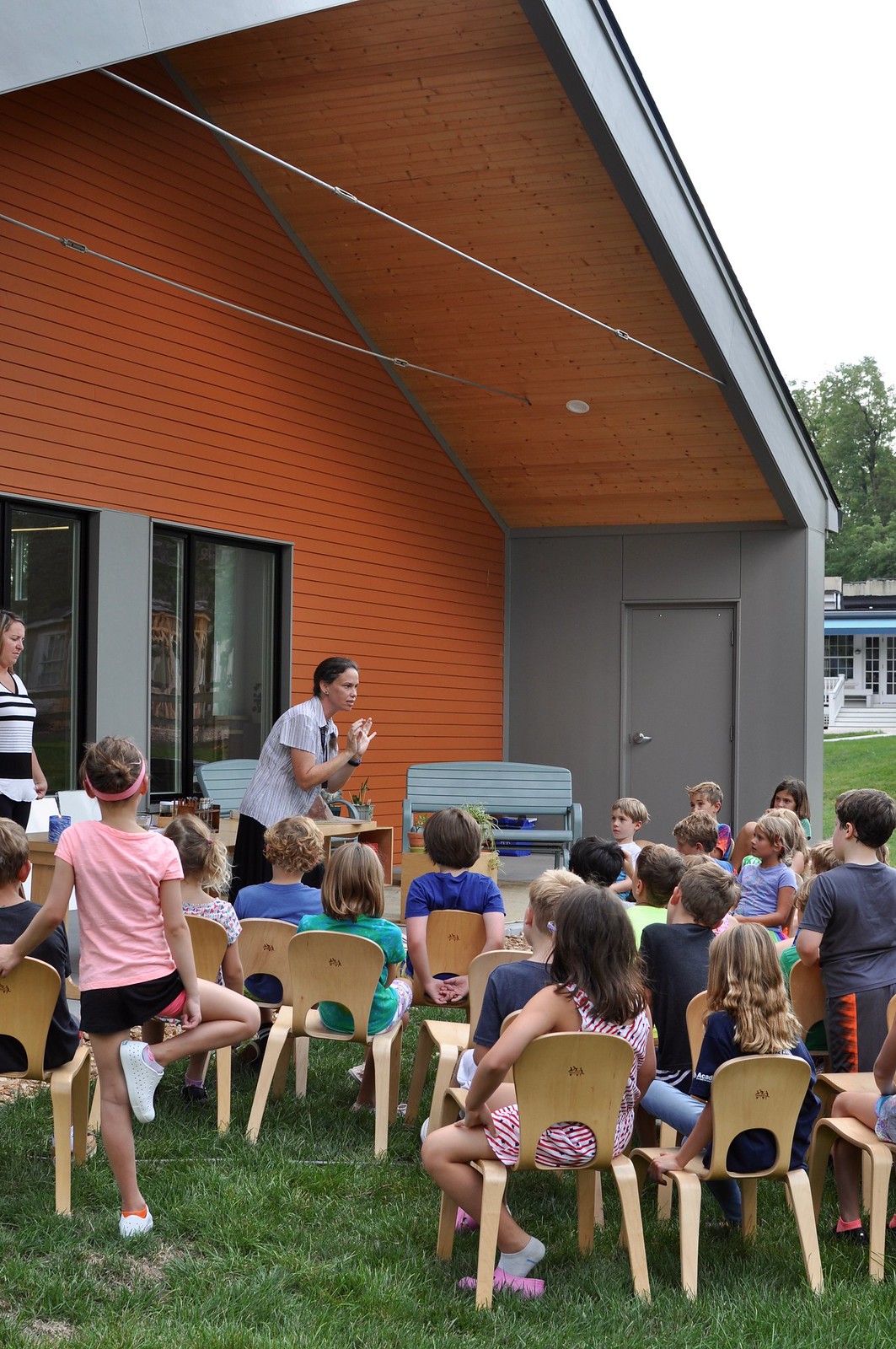 "One more idea presented in the lessons: we are here because it's our time to be here. We could not have survived during the Ordovician, or during the Big Bang. We will not live past the heat death of our own star but this time - now - is our time."Thank you, Anna, for taking the time to write so eloquently about the Great Lessons; you truly have a knack for giving us the good kind of shivers!
"One more idea presented in the lessons: we are here because it's our time to be here. We could not have survived during the Ordovician, or during the Big Bang. We will not live past the heat death of our own star but this time - now - is our time."Thank you, Anna, for taking the time to write so eloquently about the Great Lessons; you truly have a knack for giving us the good kind of shivers!

